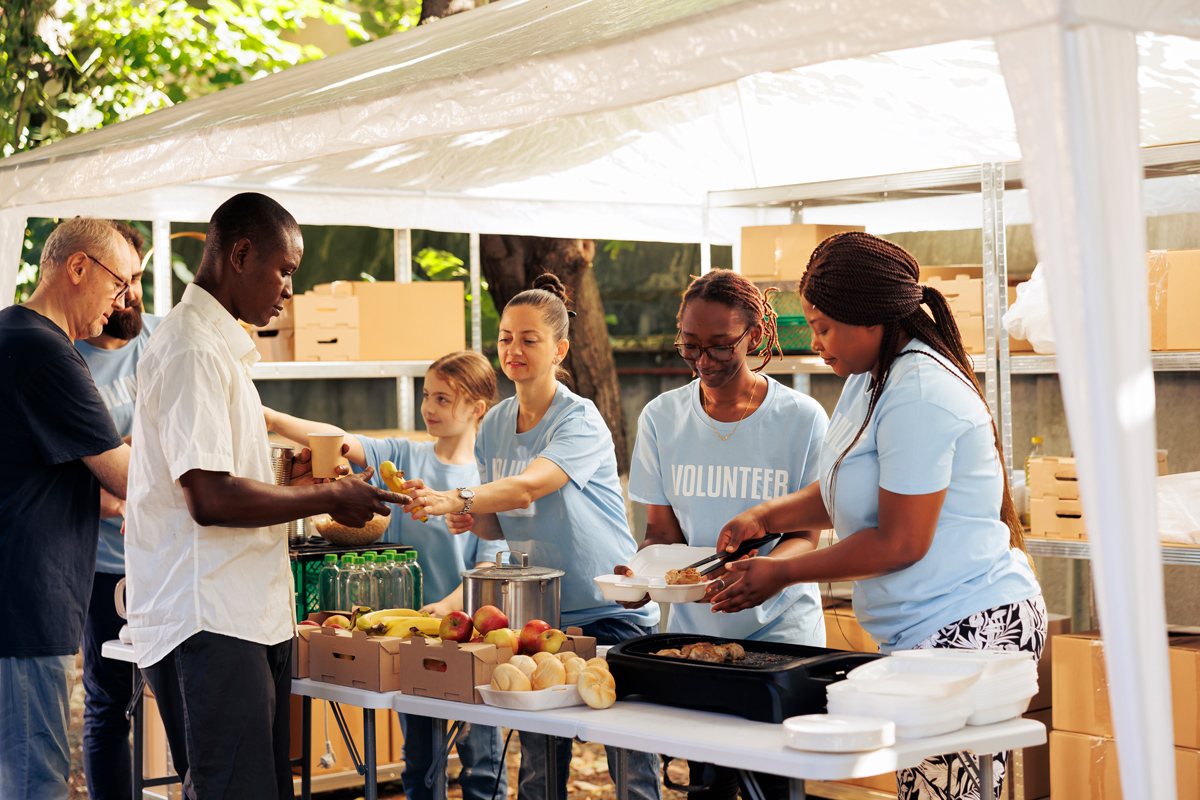🤗 20 Easy Ways to Inspire Kindness in Yourself and Others
A few years ago, I was on my way downtown to present a leadership seminar. I drove to the train station and found that the parking lot where I usually parked was closed. Transitioning to an alternate location, already behind schedule, I finally found a parking place. When I reached for my wallet to pay for parking and train, I realized that when I’d switched carrying cases, I forgotten it. Thus, I suddenly found myself with no funds for transportation. Seeing no other choice, I needed to return home, knowing I’d likely be late for my presentation.
While driving out of the parking lot, I spotted a woman walking by, whom I did not know. Without thinking, I stopped my car and exclaimed to her, “I know you’ll think I sound crazy, but…” She listened as I detailed my situation, and I asked if she would be willing to lend me $30.00. She simply reached into her wallet, we exchanged information, and she shared the funds!
I profusely expressed my gratitude and continue to feel thankful to this kind woman and her random act of trust and compassion. There truly are many kind people in the world and she is one of them. In my view, her action exemplified the term “random act of kindness.” And yes, I sent her a reimbursement check the very next day.
To be honest, I don’t know for sure what I would have done if our roles had been reversed. I’d like to think I would have helped – but am not sure how I would have reacted to a stranger stopping her car to talk to me and ask for a loan. If given the opportunity, I would love to know what possessed this woman to make the compassionate choice she did.
Kindness, one of 24 character strengths common to humankind, involves generosity, compassion, nurturance and doing for others. According to Ryan Niemiec, PhD, the world’s top authority on the science and practice of character strengths, kindness is part of the universal virtue of humanity, closely aligned with social intelligence and love (Niemiec, 2018). Other character strengths that correlate highly with kindness are: teamwork, gratitude, leadership, and fairness.

Kindness is good for us in many ways. Research shows a close association between kindness and happiness in everyday life (Otaki, et al., 2006). The strength of kindness has been linked with overall physical and mental wellbeing/health, greater subjective happiness, and longevity (Niemiec, 2018; Peterson & Seligman, 2004; 2006). Kindness towards ourselves and others can help to buffer us from the negative effects of life’s stresses and traumas.
I’ll bet most of you, dear readers, have been involved in acts of kindness, large and small. Perhaps you haven’t stopped to think about your generous, compassionate acts. When you demonstrate kindness in your own behaviors, not only are you helping others, but you can be a role model for young people who may observe and choose to follow your example with other acts of kindness.
🫶 There are many ways to be kind.
In his book Character Strengths Interventions, Niemiec suggests tracking your kind acts daily by simply counting them or writing them down (Niemiec, 2018; Otake, et al, 2006).
Here are a few ideas to inspire your own acts of kindness:
- Offering to help out in the kitchen or with other household chores.
- Bringing soup to a friend or family member who is feeling unwell.
- Sending a kind text or letter to a parent or grandparent.
- Opening the door or holding the elevator for someone pushing a stroller or anyone who might benefit.
- Visiting someone in the hospital, rehab, nursing home or recovering from an illness at home,
- Paying for coffee or a treat for the person behind you in line at a store.
- Listening with understanding and letting someone know you’re trying to understand.
- Being patient when someone is doing something slower than you would prefer.
- Putting an inspirational note in your child’s or partner’s lunch bag.
- Walking a friend’s dog when they can’t get outside.
- Shoveling your neighbor’s front walk when it snows.
- Sending a meaningful quote to family or friends.
- Telling someone you love that you love them.
- Giving your seat to someone on a plane or bus so they can sit more comfortably.
- Volunteering at a food pantry or other local organization.
- Being among the first to welcome a new co-worker or someone attending your organization for the first time.
- Taking someone out for a meal.
- Donating to an organization you care about.
- Helping an older neighbor carry groceries or a heavy item into their home.
- Being patient with yourself when you don’t meet your self-expectations.
Consider acts of kindness you’ve observed or engaged in.
How might you offer a gesture of kindness to someone this week?
Disclaimer: This article is for informational purposes only. No content is a substitute for consulting with a qualified mental health or healthcare professional.
© 2025 Ilene Berns-Zare, LLC, All Rights Reserved
An earlier version of this material was published at Psychology Today.
Send your comments and suggestions to Ilene!
Click here to send Ilene an email with your thoughts about this blog post.
References:
- Niemiec, R. (2018). Character strengths interventions: A field guide for practitioners. Boston, MA: Hogrefe.
- Otake, K., Shimai, S., Tanaka-Matsumi, J., Otsui, K., & Fredrickson, B. L. (2006). Happy people become happier through kindness: A counting kindnesses intervention. Journal of Happiness Studies, 7, 361-375.
- Peterson, C.& Seligman, M. (2004). Character strengths and virtues: A handbook and classification (Vol. 3). Oxford University Press.
- Peterson, C., & Seligman, M. E. (2006). The values in action (VIA) classification of strengths. In M. Czikszentmihalyi & I.S. Csikzentmihalyi (Eds.). A life worth living: Contributions to positive psychology (pp. 29-48). ;New York, NY: Oxford University Press.
Ilene is now on Bluesky Social! We invite you to join the conversation.
Ilene is a Featured Author on PsychologyToday!
Read her blog series Flourish and Thrive: Navigating transitions with mindfulness and resilience.

Have you recently shown kindness to yourself, a loved one, or a stranger?
Tap into your strengths, purpose, and potential to flourish in life and work.
If you’d like to discuss how Ilene Berns-Zare Coaching can help you achieve your goals, contact Ilene.
Coaching with Ilene Can Help You Call Yourself to Action
Ilene Berns-Zare, PsyD, PCC, CEC, is an Executive and Personal Coach and Speaker. Ilene helps people live their best personal and professional lives by bringing mind, body, and spirit into flow with strengths, purpose, and potential. She inspires clients to find fresh perspectives and access their full potential as creative, resourceful, whole persons. Find Ilene online, set up a free discovery coaching consultation, and access free resources at https://ibzcoaching.com/.
Please share this blog with anyone who might be interested in reading it!
We would love to hear from you! We are interested in your suggestions for this newsletter, your reactions to this one, or providing more information about coaching.




